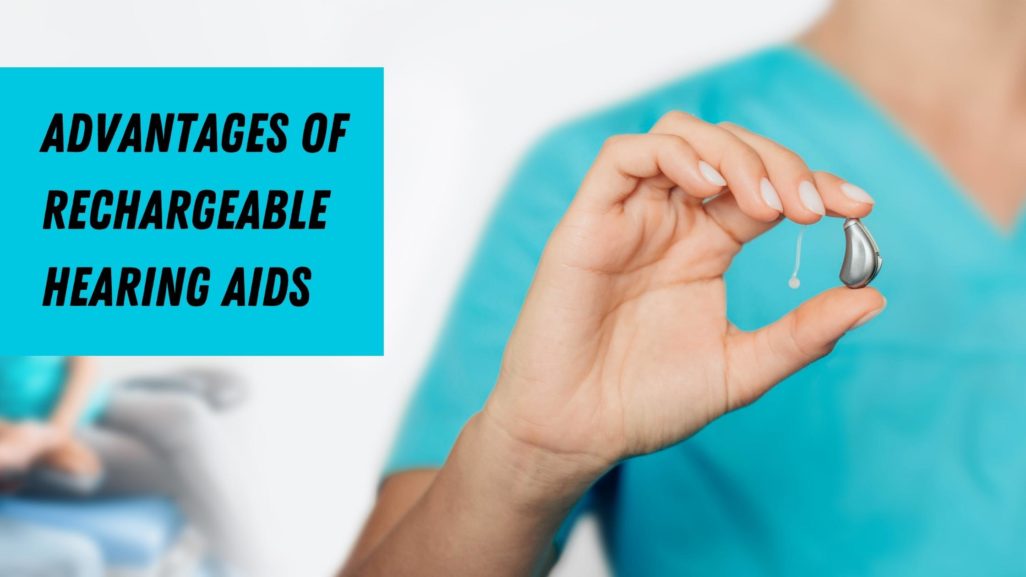Are rechargeable hearing aids worth the hype? The short answer is yes.
As a hearing aid user, you’ve probably gone through a lot of batteries as a hearing aid wearer over the years. Disposable batteries are small and only last a short time before being used up and discarded. As a result, hearing aid users frequently go through hundreds of them throughout their device’s lifetime.
Fortunately, you don’t have to stick to zinc-air disposable batteries. Hearing aids that can be recharged are not a novel concept in technology, but they are now finding popularity in the hearing aid industry. Welcome to lithium-ion technology, the world’s first rechargeable battery that can last a whole day.
A recent study found that rechargeability was an essential feature for nearly seven out of ten hearing aid users. When you examine the benefits of rechargeable batteries, it’s no surprise. The following are some of the most compelling reasons why rechargeable hearing aids might be perfect for you.
- There are no additional costs
Hearing aid users might spend up to $100 per year on disposable batteries alone. Using your hearing aids to stream information and make phone calls regularly, you could spend more money each year. You also have to invest time and money to get them.
Rechargeable hearing aids eliminate the need for online purchasing or trips to the pharmacy. The hearing aid comes with batteries that can be charged for the duration of the hearing aid’s life.
- You’ll never be without power again.
The act of recharging your batteries, like charging your phone and brushing your teeth, will become second nature to you at night. With lithium-ion batteries’ 24-hour power, you’ll rarely be without power when you’re out and about.
This is not an option with disposable batteries. Because it’s impossible to predict how much power a zinc-air battery will produce, the charge can run out at the most inconvenient times (though really, there is no convenient time for a hearing aid battery to run out). And if you forget to bring a backup supply, the rest of your day out becomes far more complicated.
- They are suitable for use in cold climates.
In freezing temperatures, zinc-air batteries struggle to function effectively. The cold weather may cause your batteries to lose their charge more quickly, reducing the strength of your hearing aids and perhaps causing sound quality issues.
Lithium-ion rechargeable hearing aids are becoming increasingly popular in cold climates since they do not have the same drawbacks as traditional hearing aids. They are equally effective in cold areas as they are in more temperate zones. Lithium-ion batteries have minimal to no charge loss in cold temperatures, making them more efficient than disposable batteries.
- The environmentally friendly option
Documentaries and news pieces have recently thrown light on the items we use and discard and what we can do to limit the quantity of rubbish we send to the landfill. On the other hand, hearing aid wearers go through hundreds of batteries throughout their hearing aid’s lifetime. In addition, if incorrectly disposed of, the batteries can wreak havoc on rivers, lakes, and water systems.
On the other hand, a single lithium-ion battery lasts practically the whole time you wear your hearing aid, making it a considerably more ecologically friendly option.
- They are better for older users.
Replacing batteries is one of the most inconvenient jobs for many older people who use hearing aids. Trying to open the battery door on a hearing aid with limited dexterity might be difficult. Hearing aid batteries are also easy to drop and lose, posing a risk to any young children or dogs who come across them.
The good news is that rechargeable hearing aids eliminate these issues. Simply place them in the charger at the end of the night and wake up with wholly charged hearing aids.
Updating Your Hearing Aids
Are you looking to update your current hearing aids to a rechargeable option? Give us a call if you’d like to learn more! We’re delighted to offer rechargeable hearing aids from the biggest hearing aid manufacturers, and we’ll work with you to select the type that’s appropriate for you. Why not book an appointment with us today?


